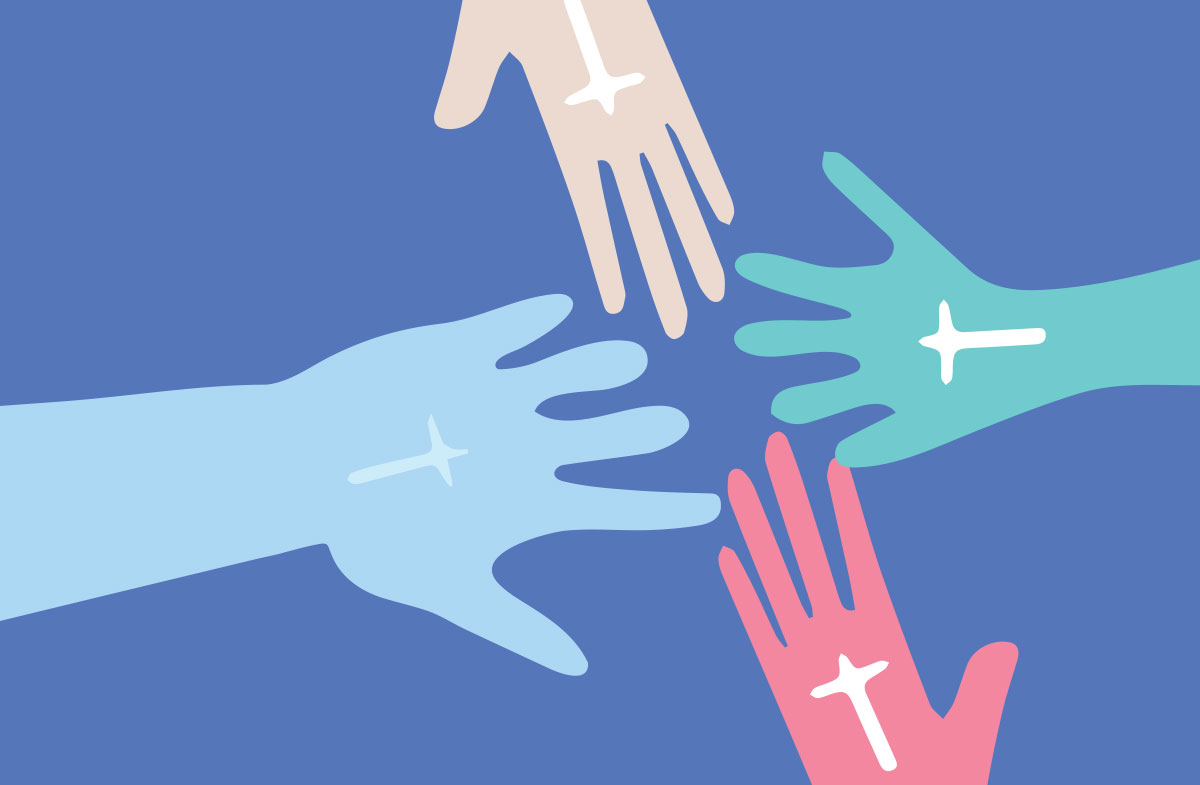Amidst marked regional differences, longstanding historical enmities, and significant missional challenges, 220 younger leaders from China, Mongolia, Korea, Japan, Taiwan, Macau, and Hong Kong gathered from 25-28 March on Jeju Island, South Korea, for the first-ever Lausanne East Asia Younger Leaders Gathering (EA YLG). During the four days at Seong Ahn Church, younger leaders from every region of East Asia found friendship across and within dividing lines and rediscovered the power of faithful communal witness, focusing on ‘The Essence of the Gospel: Unity in Diversity’.
Gospel Friendship: Mongolia and Japan
Nearly a quarter of the world’s population lives in East Asia, a region that exhibits the full spectrum in socioeconomic, political, cultural, geographical, and religious diversity. East Asian history is fraught with longstanding animosity between its nations, but in contrast, the history of Christianity in the region is full of cross-pollinating friendships. For example, the Korean translation of the Bible was born in China and first came to the Korean peninsula through China, and one of the first prominent leaders of the Korean church was discipled by a Japanese Christian. These details are made all the more surprising given the painful history of military conquest and political strife between these nations.
In turn, Korean missionaries helped bring the gospel to Mongolia. In 1989, there were just four Christians; by 2008, that number had grown to 40,000. Pastor Munkhbaatar, who participated in EA YLG as a mentor, was one of the first Christians in his country and is an eye witness to the church’s incredible growth. He speaks on behalf of the Mongolian church and the gospel’s power to mend deep historical wounds and spark collective heart-change for mission. ‘We have a debt to pay. Once Mongolians occupied many nations by the sword in Genghis Khan and his descendants’ time. We believe the Mongolian church has to go to all those places to proclaim God’s love.’ The Mongolian church’s desire is to extend humble gospel friendship to areas it has previously wounded with the sword, ‘this time not to take away their life, but to give life’.
The boom in Christianity in Mongolia can seem enviable to a country like Japan. Despite centuries of missionary efforts, Japan remains one of the largest unreached people groups in the world, with less than 1% of the population identifying as Christian, even less for those under the age of 40. This small remnant is comprised of many denominational and organizational identities, leading to divisions rather than unity. But at EA YLG, 50 younger leaders from many geographical areas, ministries, and denominations across Japan were able to join hands as one. Following the gathering, the Japan Lausanne Committee has planned a reunion in June, where the prevailing hope is that deepening friendships will lead to more fruitful collaboration in Japan.
‘We have the opportunity to do more together than we could ever possibly do apart,’ said Michael Oh, Global Executive Director / CEO of the Lausanne Movement, at the gathering. ‘That is the very design of God as we are the body of Christ. We can do more together. And we need to do more together.’
Faithful Communal Witness: China and South Korea
The past decade has brought an increase in persecution for the church in China. Church buildings have been seized and turned into office buildings seemingly overnight, pastors and friends have been imprisoned, and Christians are under constant surveillance. The recent strife has given rise to many questions of what it means to be a faithful communal witness—to be bearers of the gospel as a united group. One participant said that this period of time is making the church reflect on their theology again and forcing us to have ‘real applications’ of faith. What is church without a regular place of worship in light of the Scripture’s command to not neglect meeting? How do you love your enemy when you open your front door to a police officer whose job is to surveil you? The Chinese church has so far lived out its answer: one prominent church has continued to baptize new believers, and though every pastor’s salary has been cut, not a penny has been cut for world missions.
Defining what it means to be a faithful communal witness is also a core concern for the South Korean church. After decades of incredible growth, leading to the establishment of the world’s largest megachurches and the sending of an astounding numbers of missionaries, the church in South Korea has been facing declining church attendance, emerging scandals, and need for repentance. One response to these changing times has been the formation of small, intergenerational, grassroots learning communities in an effort to unlearn the ways of the church that led to sin issues and to relearn the church’s identity and call in a more authentic way. Joseph Lee, a pastor who works with homeless youth and a participant at EA YLG, attends one such learning community led by the vice-chair of the Korea Lausanne committee. ‘I’ve been thinking, ‘What is mission?’ I think ‘mission’ is comprised of the things that pain God. And the thing is, this is different for each person. Even if you’re in the same space as someone else, we see different pains. These are our distinct missions. The things that pain God, the pains from his perspective, the places where God is weeping, these are the things that make up our mission.’
On the final night of the gathering, David Ro, Lausanne Regional Director for East Asia, reminded participants of the first morning’s session, that missions was no longer about one or two missionary heroes, but about whole missions movements fueled by many ‘nameless’ people. As evidenced at EA YLG, something miraculous happens when an amalgamation of diverse people stands under one banner, each person called to ‘see different pains’, yet everyone together functioning as one body to bear witness to a kingdom in which there will be no more tears. The church in East Asia and around the world is utilizing the hands and feet, ears and back, guts and brain, mouth and heart, to bring the gospel to East Asia and beyond—no matter the cost.
Read more (in English, Korean, Chinese, and Japanese) and watch a video about the East Asia Younger Leaders Gathering.

